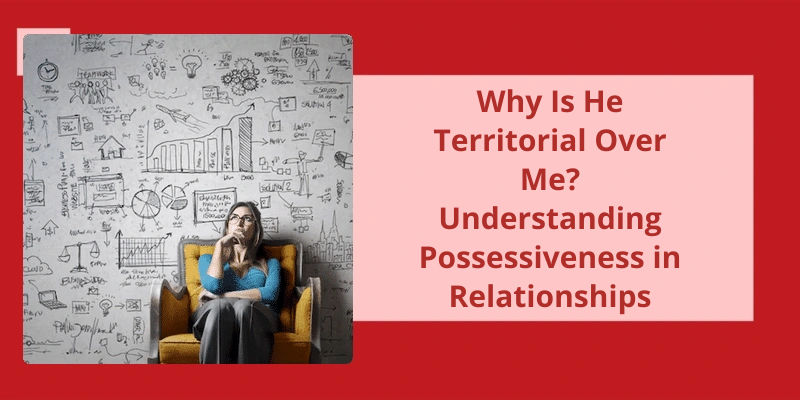In the complex realm of relationships, there comes a point when the initial excitement and passion begin to fade, and the realities of daily life start to take their toll. It’s during these challenging times that people often find themselves questioning the strength of their connection and contemplating whether to stay or leave. When faced with adversity, individuals may experience an overwhelming mix of emotions, including restlessness and longing for something more, juxtaposed with feelings of guilt and embarrassment for feeling dissatisfied. This internal conflict arises from the realization that what once brought fulfillment and joy is no longer enough to sustain a fulfilling relationship. As tensions escalate and disputes become a constant presence, the strain gradually wears on the foundations of the partnership. Unfortunately, it’s all too common for one partner to bear the brunt of this destabilization, leading them to consider leaving in search of greener pastures.
Why Do Relationships Go Through Hard Times?
Why do relationships go through hard times? Oftentimes, relationships struggle because you and your partner don’t spend enough time together. And it’s understandable why. Many couples have conflicting work schedules or life happens. Long distance relationships are also on the rise, which is always a struggle.
When you don’t spend enough time with your partner, it can lead to feelings of neglect and disconnection. Communication breaks down, and it becomes difficult to maintain the emotional intimacy that’s necessary for a healthy relationship. Without regular quality time together, you may start to feel like strangers, drifting apart.
Another reason why relationships face challenges is the absence of effective communication. When partners are unable to express their needs, wants, and concerns openly and honestly, conflicts arise. Misunderstandings breed resentment, as unspoken expectations can lead to disappointment. Lack of communication can create an emotional barrier that inhibits problem-solving and hinders relationship growth.
Trust issues can also contribute to the hardships in relationships. Betrayal, whether it be through infidelity or broken promises, can deeply erode trust. Once trust is broken, it takes time and effort to rebuild it. Without a solid foundation of trust, a relationship can become fragile and easily damaged. Partners may start questioning each others motives and intentions, leading to further insecurity and doubt.
Challenges can arise when one or both partners experience personal growth or change. As individuals evolve, their needs and desires may shift, causing strain in the relationship. This can lead to feelings of unease or dissatisfaction as partners may feel like they’re no longer compatible. It takes open-mindedness and willingness to adapt to support each others growth and navigate these changes.
Lastly, unresolved conflicts and resentment can accumulate over time, making a relationship increasingly difficult. When issues are repeatedly ignored or pushed aside, they can fester and grow into deeper problems. Without addressing and resolving these underlying issues, the relationship becomes strained, and the emotional connection weakens.
Lack of quality time together, poor communication, trust issues, personal growth and change, and unresolved conflicts are some dynamics that contribute to relationship challenges. To overcome these difficulties, it’s crucial for partners to prioritize spending time together, communicate effectively, build and rebuild trust, support each others personal growth, and address and resolve conflicts in a healthy manner.
Strategies for Prioritizing Quality Time in a Relationship
Strategies for prioritizing quality time in a relationship can vary depending on the couple and their unique circumstances. However, some general tips can be helpful.
Firstly, communication is key. Both partners should openly discuss their needs and desires for quality time together. This can include setting aside dedicated time for each other, such as date nights or weekend getaways.
Additionally, it can be beneficial to establish boundaries and set realistic expectations. This might involve creating a schedule or routine that allows for quality time, while also recognizing the individual needs and responsibilities of each partner.
Finding shared activities or hobbies can also enhance the quality time spent together. This could involve trying new experiences, pursuing mutual interests, or engaging in activities that promote bonding and connection.
Furthermore, it’s important to be present and mindful during quality time. This means putting away distractions, such as phones or work-related stress, and truly focusing on one another. Active listening and genuine engagement can deepen the emotional connection and intimacy in a relationship.
Lastly, it’s vital to remember that prioritizing quality time requires effort and commitment from both partners. It’s a continuous process that requires regular evaluation and adjustment. By investing in quality time together, couples can strengthen their bond and navigate the challenges that inevitably arise in relationships.
Is it normal for relationships to be hard sometimes? Relationships are hard work, but they don’t have to be impossible. It takes time and effort to build and maintain a strong and healthy relationship.
Is It Normal for Relationships to Be Hard Sometimes?
Is it normal for relationships to be hard sometimes? Absolutely. Relationships are complex and multifaceted, involving two individuals with their own needs, desires, and baggage. It’s inevitable that conflicts and challenges will arise along the way. In fact, some degree of difficulty is necessary for growth and development within a relationship. It’s through facing these challenges that we learn about ourselves, our partners, and how to navigate the ups and downs of a committed partnership.
However, it’s important to distinguish between healthy and unhealthy relationship difficulties. Healthy difficulties involve open communication, compromise, and a willingness to work through problems together. These challenges can strengthen the bond between partners and enhance their emotional intimacy.
Ultimately, the decision to leave a relationship when it gets hard is a deeply personal one, influenced by various factors such as individual needs, values, and the level of investment in the relationship. Some people may choose to leave because they feel overwhelmed or emotionally drained, while others may prioritize their own well-being and seek healthier alternatives.
How to Recognize and Address Unhealthy Relationship Difficulties
In unhealthy relationships, difficulties often arise in various forms. Some common signs of an unhealthy relationship include constant arguments and disagreements, lack of trust, emotional or physical abuse, and a general feeling of unhappiness or dissatisfaction. These difficulties can take a toll on both individuals involved and make it challenging to maintain the relationship.
Recognizing these problems is crucial in addressing them effectively. It’s important to be self-aware and take note of your own feelings and behaviors. If you find yourself constantly unhappy, fearful, or isolated in the relationship, it may be a sign of an unhealthy dynamic.
Addressing these unhealthy relationship difficulties requires open and honest communication between both partners. It’s essential to discuss concerns, express needs and boundaries, and work together to find resolutions. Additionally, seeking professional help from a therapist or counselor can provide guidance and support in navigating these challenges.
Ultimately, people may choose to leave relationships when they become hard because they prioritize their personal well-being and happiness. It’s important to recognize that leaving a relationship is sometimes the best decision for personal growth and a healthier future.
Navigating relationships can be a challenging journey, often filled with obstacles that make it feel like an uphill battle. From varying attachment styles to communication roadblocks and unrealistic expectations, there are numerous factors that can complicate even the strongest of connections. Recognizing these potential pitfalls is essential for fostering healthy, fulfilling relationships. However, it’s equally important to remember that relationships aren’t meant to be effortless; they require ongoing commitment and hard work.
Why Do Relationships Feel So Hard Sometimes?
Why do relationships feel so hard sometimes? There are several factors that can contribute to the challenges we often face in relationships. One significant factor is differences in attachment styles. People have different ways of relating to others based on their early experiences and the way they were emotionally nurtured as children. These attachment styles can greatly impact how individuals communicate, trust, and form emotional connections in adult relationships. If one partner has a more anxious or avoidant attachment style, it can create misunderstandings and conflict in the relationship, making it feel harder.
Another reason why relationships can feel difficult is poor communication skills. Effective communication is the foundation of a healthy and successful relationship. However, many people struggle with expressing their needs, listening attentively, and resolving conflicts constructively. This lack of communication skills often leads to misunderstandings, frustration, and resentment, creating a challenging atmosphere within the relationship.
Unrealistic expectations can also make relationships feel hard. It’s common for individuals to have certain expectations about their partner and the relationship itself. However, when these expectations are unrealistic or based on fantasies, it can lead to disappointment and dissatisfaction. It’s important to have realistic expectations and understand that relationships require effort, compromise, and continuous growth.
Moreover, relationships are a work in progress and require effort and dedication. It’s crucial to invest time and energy into nurturing the relationship, resolving conflicts, and supporting each others needs. Without this commitment, relationships can become stagnant, challenging, and eventually lead to dissatisfaction.
Why Do Some People Run Away When Things Get Hard?
Lamont, a licensed therapist. This tendency to flee from difficult situations can stem from a fear of facing adversity or a lack of emotional maturity. When faced with challenges in a relationship, some individuals may find it easier to abandon ship rather than confront the underlying issues and work through them. The idea of starting fresh in a new relationship or being alone can seem more appealing than putting in the effort to repair a troubled partnership.
Additionally, people may leave relationships when it gets hard because they’ve unrealistic expectations. Society often portrays a romanticized version of love and relationships, where everything is smooth sailing and effortless. This can lead to disappointment and a desire to escape when real-life challenges arise. The idea of finding someone new who’ll effortlessly meet all their needs and desires can be alluring, even if it’s unrealistic.
Another possible reason for leaving when things get tough is a lack of effective communication and conflict resolution skills. It isn’t uncommon for individuals to struggle with expressing their emotions and needs, which can lead to misunderstandings and escalating tensions. When confronted with difficulties, some people may choose to avoid difficult conversations or resort to unhealthy coping mechanisms, such as stonewalling or passive-aggressive behavior. These behaviors can erode trust and intimacy, making it even more difficult to navigate through challenging times.
Furthermore, the fear of vulnerability can play a significant role in why people leave relationships during challenging periods. Opening up and exposing our true selves to someone else can be intimidating and scary. When faced with adversity, individuals may choose to protect themselves by withdrawing emotionally or ending the relationship altogether. This fear of vulnerability and potential rejection can overshadow the potential for growth and deeper connection that comes with navigating through tough times together.
Finally, some individuals may leave relationships when things get hard because they haven’t developed the necessary resilience and coping skills to navigate challenges. Life inevitably presents us with difficulties, and it’s through facing and overcoming these challenges that personal growth occurs. However, if one hasn’t learned healthy coping mechanisms and resilience, they may feel overwhelmed and ill-equipped to persevere in the face of relationship hardships. In such cases, leaving may feel like the only viable option to escape the discomfort.
These reasons can include a fear of facing adversity, unrealistic expectations, a lack of effective communication and conflict resolution skills, a fear of vulnerability, and a lack of resilience and coping mechanisms. While it may initially offer temporary relief, running away from relationship challenges can ultimately hinder personal growth and prevent the development of deeper connections. It’s important to recognize that relationships require effort, commitment, and a willingness to address difficulties head-on in order to foster growth and long-term satisfaction.
The Benefits of Couples Therapy or Counseling in Addressing Relationship Challenges and Developing Healthier Coping Mechanisms
- Improved communication skills
- Enhanced understanding and empathy between partners
- Effective conflict resolution strategies
- Increased emotional intimacy
- Identification and management of unhealthy patterns
- Development of healthier coping mechanisms
- Rebuilding trust and repairing relationship damage
- Strengthened commitment and commitment to personal growth
- Breakdown of barriers and improved emotional connection
- Greater satisfaction and fulfillment in the relationship
Source: What to Do When You Feel Like Running Away – Verywell Mind
The first year of a relationship can often be the most challenging phase, as it’s during this time that you start uncovering the bad habits, idiosyncrasies, and conflicting opinions of your beloved. Even when you reach the point of living together, the journey of discovering new aspects about each other persists on a daily basis.
What Is the Hardest Stage of a Relationship?
The hardest stage of a relationship is arguably the first year. It’s during this time that you truly begin to unpack your partners quirks, bad habits, and conflicting opinions. Initially, everything may seem like smooth sailing as you ride the wave of infatuation and excitement. However, as the relationship evolves, the rose-tinted glasses start to fade away, revealing the imperfections that were once hidden. Discovering these nuances can be challenging, as they test the compatibility and the strength of the bond you’ve formed.
Living together doesn’t exempt you from encountering new aspects of your partners personality. Each day brings a new opportunity for revelation – from discovering peculiar bedtime rituals to witnessing irritating pet peeves. It’s during these moments that conflicts emerge and the foundation of the relationship is put to the test. The more you uncover about your partner, the more you realize that true love requires putting in the effort to understand and accept them, flaws and all.
Additionally, the first year often serves as a transition period, as you adjust to sharing your life with someone else. This phase involves navigating through differences in routines, communication styles, and personal preferences. These adjustments can create friction and lead to relationship strain. It becomes a delicate dance of compromise and understanding, where both parties strive to cater to each others needs and maintain a harmonious coexistence.
Furthermore, the first years challenges are amplified by the fact that the initial honeymoon phase has worn off. The novelty and excitement that once surrounded the relationship may fade, leaving room for doubts and uncertainties to creep in. The absence of constant exhilaration can make the relationship feel stagnant or dull, causing individuals to question if they’re truly compatible or if they should pursue alternative options.
Ultimately, the first year of a relationship represents a critical juncture where both partners are faced with the choice of whether to persevere through the hardships or to abandon ship. It requires a deep commitment to growth and a willingness to confront and navigate through the trials and tribulations that arise. While it can be difficult, this stage also presents an opportunity for personal and relational growth, paving the way for a stronger and more resilient bond in the long run.
Long-Distance Relationships: Explore the Unique Difficulties Faced by Couples Who Are in a Long-Distance Relationship, Including Challenges With Communication, Trust, and Managing Expectations.
Long-distance relationships can be extremely challenging for couples due to the unique difficulties they face. One of the primary obstacles is communication, as physical distance can make it harder to stay connected and maintain regular contact. Trust also becomes a crucial factor, as the lack of proximity can lead to doubt and insecurity. Additionally, managing expectations becomes more complicated, as both partners may have different visions and goals for the relationship.
Conclusion
Ultimately, the decision to leave a relationship when things get hard isn’t a simple one. People experience a myriad of emotions and conflicting desires during challenging times. Restlessness and a desire for something more may arise, causing individuals to question the solidity and satisfaction of their current partnership. At the same time, there’s often a sense of guilt and embarrassment for wanting to move on from a relationship that was once fulfilling. However, it’s important to acknowledge that constant disputes and conflicts can wear down even the strongest bonds. While both partners may be affected by these challenges, it’s common for only one individual to reach a breaking point and desire an end to the relationship. Ultimately, understanding the reasons behind why people leave relationships when it gets hard requires a deep exploration of their personal circumstances, emotions, and individual thresholds for enduring difficulties.






